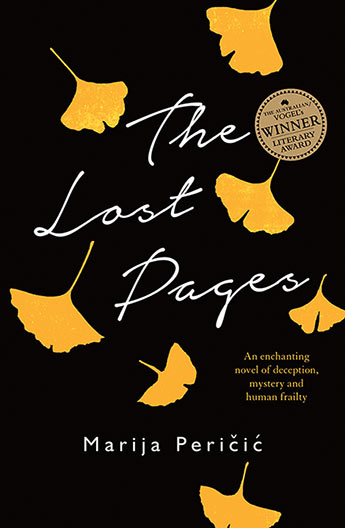Author: Marija Peričić
Publisher/Year: Allen & Unwin, 2017
Publisher Synopsis
It is 1908, and Max Brod is the rising star of Prague’s literary world. Everything he desires-fame, respect, love – is finally within his reach. But when a rival appears on the scene, Max discovers how quickly he can lose everything he has worked so hard to attain. He knows that the newcomer, Franz Kafka, has the power to eclipse him for good, and he must decide to what lengths he will go to hold onto his success. But there is more to Franz than meets the eye, and Max,too, has secrets that are darker than even he knows, secrets that may in the end destroy both of them.
The Lost Pages is a richly reimagined story of Max Brod’s life filtered through his relationship with Franz Kafka. In this inspired novel of friendship, fraud, madness and betrayal, Marija Pericic writes vividly and compellingly of an extraordinary literary rivalry.
Reviewer: Christina Lee
First of all, a spoiler. This isn’t crime fiction at all, and seems to have got into the Sisters in Crime review list by accident. But it did win the Australian Vogel Literary Award, and I’m certainly not going to turn down the opportunity to read a good book. And it is an excellent book, beautifully written and highly readable.
Second, a bit of a puzzle. Our narrator is a German-speaking Czech,Max Brod, and the novel is set in Prague in 1908 or thereabouts. But he’s not the historical Max Brod.
The real Max Brod, although not well known as a writer today, was a prolific and successful author at the centre of the Prague literary scene. He published dozens of books and, despite a severe physical disability and the need to flee the Nazis in 1939, lived a long, full life. He was by all contemporary accounts a warm and generous man who used his considerable fame to support other writers.
These other writers included Franz Kafka, who – despite some early success – had no confidence in his writing. They were both still teenagers,university students in Prague, when Brod and the slightly older Kafka met, and they remained close friends, seeing each other nearly every day, for over twenty years. Kafka died from tuberculosis at the age of forty and Brod took on the task of preparing his manuscripts for publication. These included Kafka’s greatest works, which had remained unpublished in his lifetime.
In Peričić’s book, Brod becomes an older, established writer who has had one successful novel and is now confronting his failure to write a second novel, his repellent physical appearance, and his fading reputation. He is portrayed as a deeply unpleasant person, simultaneously narcissistic and self-loathing. In an early chapter, the author shows him musing regretfully that he no longer seems to enjoy picking out strange women on trams and following them home.
The imaginary Brod meets an equally imaginary Kafka, a young student, when giving a guest lecture at the university and is instantly consumed by horrified jealousy. Kafka’s obvious brilliance as a writer, and his considerable personal charm, terrify Brod, and he decides to dedicate his life to destroying him. The novel deals grippingly with the invented Brod’s psychological disintegration as he becomes more and more obsessed with Kafka, a figure who is mainly absent from the actual events of the novel but who dominates Brod’s ruminations. The writing, entirely from Brod’s point of view,becomes steadily more feverish until it descends into nightmare and madness. By the end, this reader at least is left wondering whether the imagined Kafka ever existed outside Brod’s disturbed imagination.
Undoubtedly this is a well-written book that is fascinating to read. Peričić presents the entire thing as if it was a translation of material found in Max Brod’s papers after his death, and the text has both a clarity and a sense of oddness that makes it feel as if it has actually been translated from century-old German notebooks.
I’m interested, though, in why she chose to invent two characters and give them the names of historical people. Of course novelists make things up, that’s the point. But she could have made up two entirely fictional characters, who just happened to live in Prague at the same time as Brod and Kafka, without the book losing and of its strength and poignancy. I’d love to know why she decided to do it this way.
